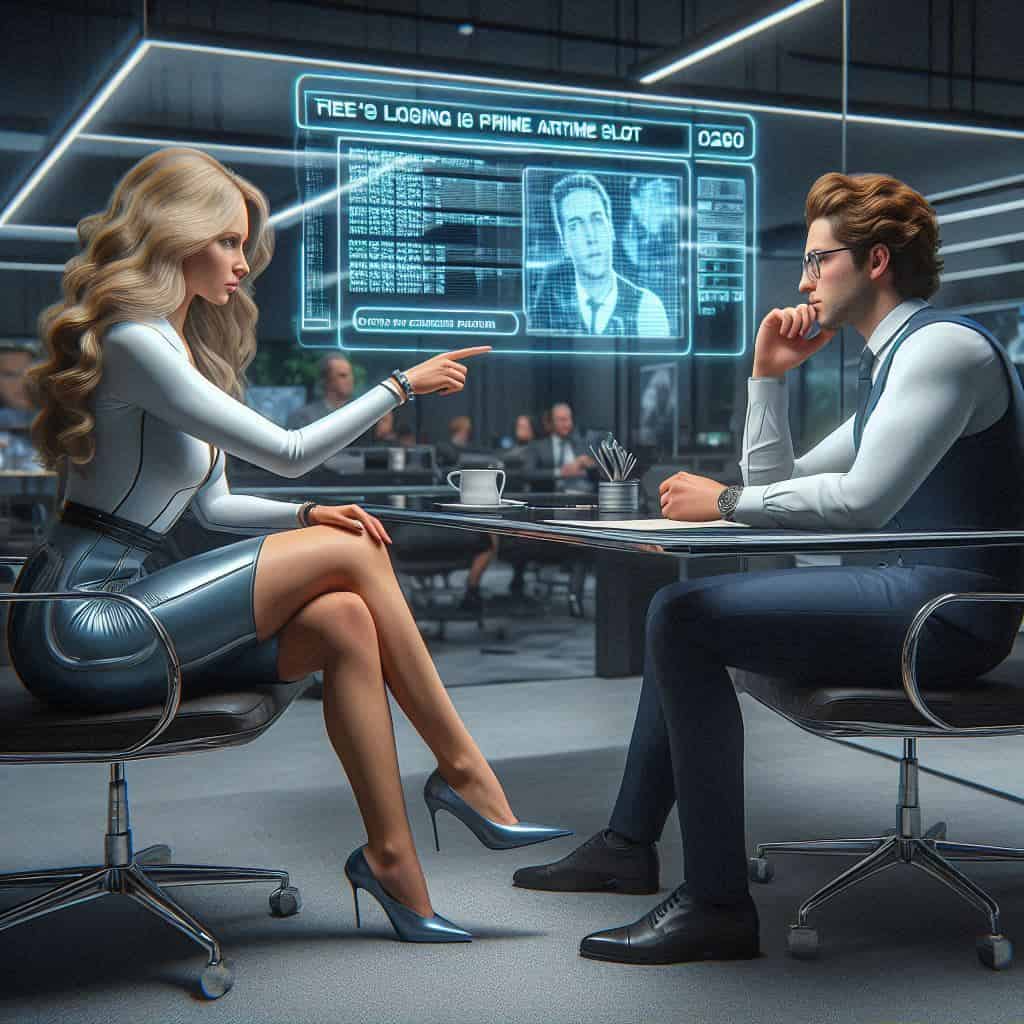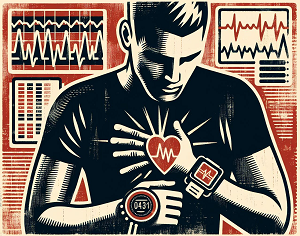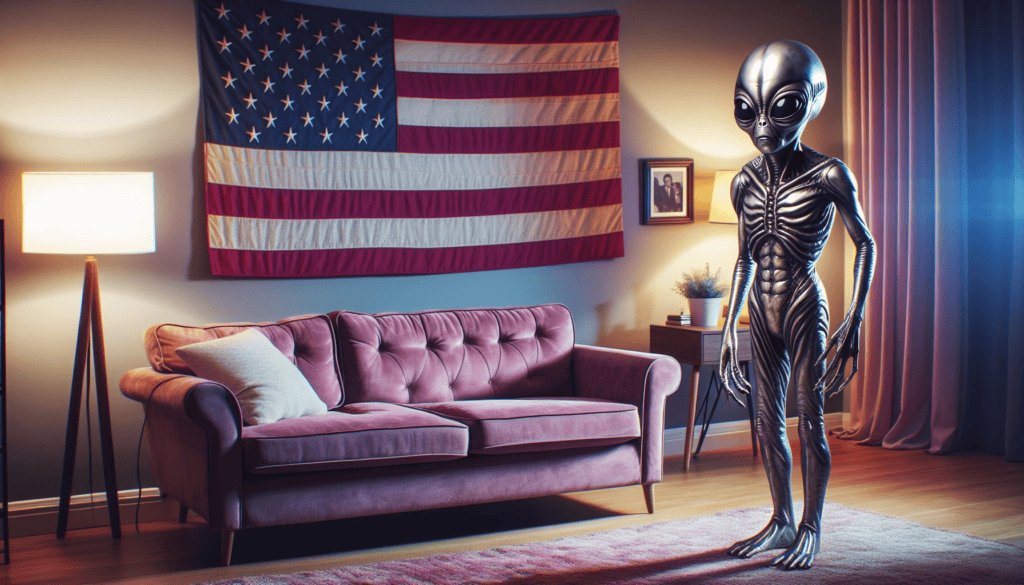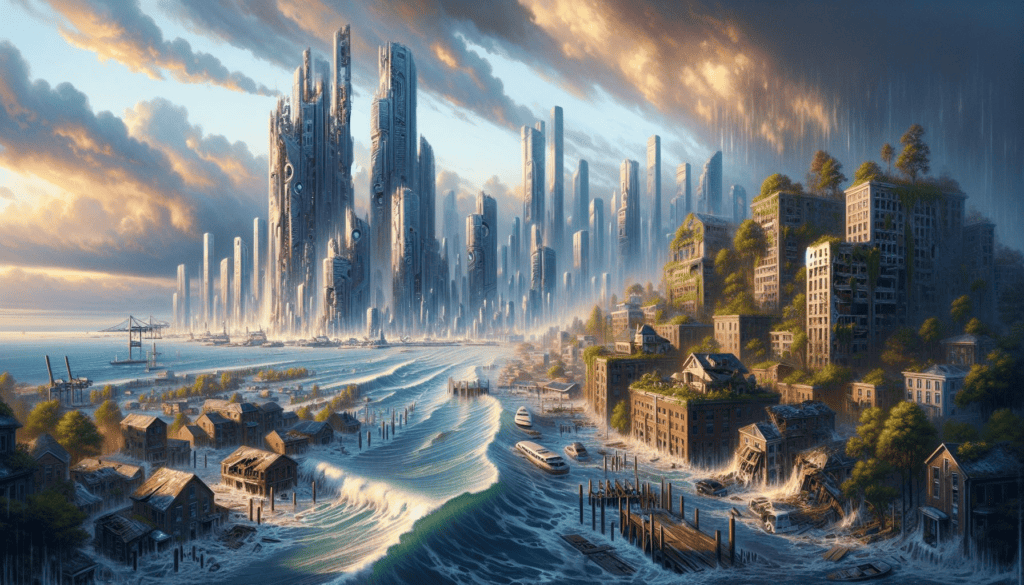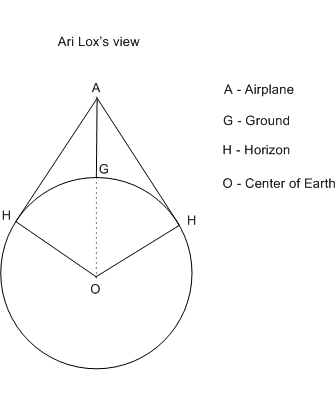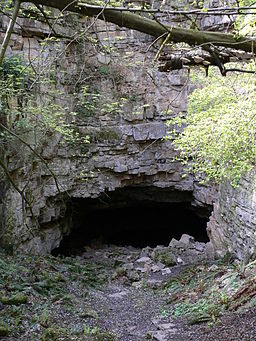BaltSea
If you haven’t read the first installment of Sea Catastrophe, I recommend starting with 10 Feet in 100 Years before diving into BaltSea.
| Mean Winter Temperature 56°F Mean Winter Precipitation 21 inches – Measurement Almanac | Exurb Baltimore Thursday April 5, 2238 |
Professor Nathan Garret tried to relax in his floating MHD car after his latest prototype yielded less than 30%. He thought he might never improve the yield of his wood pulp to polystyrene enough to impress the award committee.
As he arrived home, his thoughts were interrupted by a disturbing sight. The vandals had returned.
He entered the tidy hilltop estate Meredith’s father had gifted them on their wedding. The cowardly vandals had spray-painted the door of his weather station with the slogan ‘Nature is Good, Science is Bad.’ The words stung, a stark reminder of the growing anti-science sentiment.
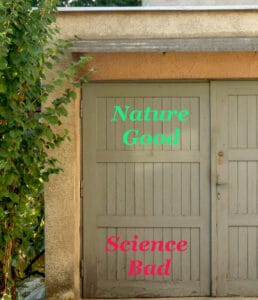
He would erase it, as with the earlier ones before Meredith returned from her clinic. The slogan on their home turf would upset her. It angered him. They would not confront him and let him answer that science would save humanity from global warming.
Determined to maintain their sanctuary, Nathan took immediate action.
He parked the MHD then examined his scientific getaway. The lock and shatterproof walls had stopped the vandals, whoever they were, from getting inside. However, they had thrown rocks over the sides and through the sky opening. He neutralized the slogan
Nature Good
Science Bad
and repainted it to match the original door color.
With a heavy heart, Nathan moved to inspect the damage in his weather station.
After swiping his palm across the electric eye, he entered his sanctuary. Rocks littered the open, central space. The staff holding the weather vane and anemometer broke after being hit. His rain gauge had a fist-sized rock in it and barely any water. Thankfully, his instrument shelter had protected its devices.
After he checked for damage in the corridors that enclosed the outside instruments, he entered his office. “Go-fer”, he addressed the utility bot, idle in the corner of the room. “What do you know about the rocks thrown in the atrium?”
“The first projectile landed at 10:01 this morning. Over the next half-an-hour, thirty-six more projectiles entered the atrium. I lost contact with the weather vane and wind input stream at 10:13.”
“Go-fer, did your outside cameras catch who was throwing the rocks?”
“No, Professor, but I am 85% complete the tasks you set for me on April 1.”
Nathan gritted his teeth as he addressed the bot, which couldn’t initiate actions on its own conclusion without confirmation due to the Proclamation of 2174.
“I see. Give me your report.”
During the next hour, Nathan forgot his problems with his prototype, the crude assertions of the graffiti on the weather station, and that Meredith spent even more time attending her patients than he did on his work. The rhythm of rising temperatures and droughts alternating with monsoons had increased in the most recent 30-year cycle.
Seeking clarity, he turned to his trusted assistant.
“Go-fer, display the Baltimore coastline with its historic limits.”
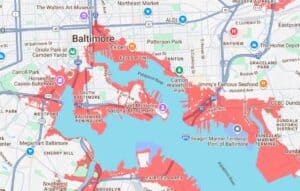
The loss of land to water was relatively small, but the city’s population was down over three-quarters, barely one hundred thousand people. The harbor’s expensive infrastructure was difficult to replace. The map did not show that storms flooded more than a mile further in many directions. People and industries took the initiative to rebuild beyond the 100-foot contour line. In the last century, the relocations were inland to the Appalachians or to their far side.
As the storm intensified, Nathan’s thoughts drifted to the past.
He walked around to the back visisteel window. Lightning illuminated the small grove of Brazilian peppertrees which he tended for his cellulose stock and, closer to the house, flowery bougainvillea shown brilliantly. How long had it been since he and Meredith sipped tea there?
The walls of the weather station shook by thunder following intense lightning bolts. Looking south, down the hill towards the lake, a large poplar bent under increasing wind gusts.
Go-fer called over the loudspeaker. “Alert. A chemist in Argentina, has announced a 57% yield in cellulose synthesis.”
Nathan turned, but an exceptionally sharp flash following at once by a boom, stopped his response.
Suddenly, everything went dark.
~~
Liquid fire dripped on his head. Painful drop after drop pounded onto his brain. At some point, he realized pain meant he was alive. He was glad only until the next drop pounded his head. He moved his head. The drop struck his cheek. But his arms wouldn’t move, neither would his legs. He receded back to unconsciousness.
“Nathan, are you in there? Nathan?”
He croaked, “Yes.”
The next thing that Nathan knew he lay in a bed. Why wasn’t he working on his prototype? Why was Meredith scanning his thigh?
“You’re coming to. Thank goodness,” she said.
Nathan tried to sit up. He couldn’t.
“Be still. I had to strap you down to make sure you wouldn’t roll off.” She returned to her instrument. “There’s a significant fracture in your right femur. You won’t be able to use it until I wrap a support about it.”
“What …?” Nathan craned his head to see his leg.
Meredith scooted up to calm her spouse. “You were in an accident. That old poplar crashed through your Weather Station. I found you under the debris. Go-fer helped me get you out of there and into here.”
“… damage?” He asked.
“Relax,” she said. “You have a nasty bruise on your forehead. Your reading also shows a concussion. It will need to be monitored for a week or more.”
“No,” he said, “… work.”
“I’m sorry, but you must rest.”
In his addled state, Nathan saw not Meredith but the matron from his childhood at the CRISPR Foundary who always refused his every wish. “Prototype …”
Meredith patted his face with damp gauze. “Nathan, you are in no shape to do anything now. Close your eyes. Rest and sleep will heal you faster.”
Nathan reluctantly complied, drifting into a restless sleep.
| We eat too salty and live too bland. – Toon Verhoeven, Netherlands (1941-) | Home Solarium Monday April 9, 2238 |
The morning sun brought a new sense of determination. It flooded into the solarium.
With three days at rest, his head no longer ached constantly, though his leg lay stiff in Meredith’s constricting wrap.
“Gray roof to ninety percent. Side walls to fifty.” Instantly Nathan felt cooler as the visisteel responded. The roof’s fusion generator distracted him. He added, “Make right window totally opaque.”
He called to his bot. “Go-fer. Bring me my compad.”
The bot brought it to him. “Now, go downstairs to the kitchen. I want lab-synth milk and Cheerios. Also, a cup of my special crystalized caffeine shake chilled.”
With that in progress, he called Meredith’s clinic.
Alandra Bosco, the nurse, answered. “Lower Patapsco Health Clinic. How can I help you?”
In the background, an unkempt man stood at a scale and a young girl cried as she scratched her stomach through a thin blouse.
“Hi, Alandra. Sorry to interrupt, but is Meredith available?”
Alandra looked up at the screen. “Good morning, Professor. No problem. Typical day. You looking better than I expected. The doctor told me about the tree crash. You’re lucky.”
“Yes. Meredith?”
She turned to the patients. “Be back in a moment.”
Nathan saw, as he infrequently called, how tiny the clinic was. Meredith was in its other room swabbing lotion on a young man’s torso, covered by a rash he recognized.
“Doctor, your partner’s on the compad.” Alandra set it on the table. “Another rash case, she’s just seven, just walked in.”
“Thank you, Nurse.” She turned to her patient. “Let that medicine soak in. Don’t touch it. I’ll check back shortly.”
Meredith glanced at Nathan’s image. “Let’s take this outside.”
Bright sunlight of early summer glared faded the details Nathan saw. “In the shade, please,” he said.
“Of course.” She walked behind a large trunk. “How are you feeling this morning?”
“Fine. But it’s time I go back to work. The submission is due in less than six weeks and what I have now is not good enough.”
Meredith shook her head. “Nathan, I understand the pressure you’re under, but your health is more important. Your monitor showed unusual neural activity in your concussed area this morning.”
“But I have to …”
She cut him off. “Can I suggest something? Maybe taking a step back will give you a fresh perspective.”
Nathan bit off his irritation and said, “Okay.”
“I sympathize with your desire, but you’ve told me your lab work is not progressing. So, take a few more days, at home, at rest. Rethink your procedure. That will be more productive than running in circles at the lab.”
Nathan didn’t like staying home. “It’s a prototype, not a procedure. However, I did feel woozy when I hobbled into the bathroom. Okay, a few more days.”
Meredith fingered her amethyst necklace, the only jewelry she allowed herself. “Good. Oh, don’t be surprised if Tamesha comes by today. I left her a list of refugees I’ve seen her.”
Nathan laughed. “She’s checking up on me?”
“Feeling paranoid, are you? No, it’s assisting newcomers with the legalization process. After I check on your progress tonight, if you’re up to it, we can talk about what avoid when I bring it up.”
Nathan couldn’t stop himself. “Bringing a baby into the world is not a good idea. The world is splitting into haves and have-nots, and I don’t want our child to face that.”
A vexed look crossed Meredith’s face. “Nathan, our child would be working to make the world better. We’ll talk more about that tonight, but please try to see the bigger picture.”
Nathan stared at the blank screen. During his days in the Foundary, he promised himself he would never bring a child into this world to face the unattainable demands of modern society. In his thirty-some years since then, events had only confirmed his opinion. The world was splitting into haves and have-nots, sheltered areas and everywhere else. The haves were concerned with maintaining their well-being and wishing the have-nots would not bother them for handouts.
| Twenty-Foot Rise Affects Billions 100 Million Moved; 10 New Cities Founded – World Sea Level Commission Report | BioPlastics Laboratory Wednesday May 2, 2238 |
After Nathan returned to work, he used the urgency of his task to stay nights in his office and avoid the strained relationship with Meredith.
Lucia Jefferson, his lead grad assistant, handed him the latest results. “Yield is barely over 30%. The abnormal pentose and halogen-substituted side chains have electrical properties that interfere with the proper monomers physical orientation during polymerization.”
“That is not good enough,” Nathan said. “Not good at all.”
She shrunk a bit at his accusatory tone. “I was just following your instructions, Professor.”
He shook his head. “I didn’t mean that about your work, but about my idea. I’m just frustrated with the lack of progress.”
“I understand, Professor. We’re all trying our best. Maybe we need to approach it from a different angle.”
He went to the lab window, the setting sun peeked through the blowing tree’s canopy. The last storm appeared to have signaled a shift to an early summer dusty sirocco. “Go home. You can call it a day. I will continue to search for a better prototype among effective temperatures, hemicellulose enzymes, reaction times, and extrusion limits occurs to me.”
After Lucia left, Nathan stared at the chemical equations as if he could force them to reveal their secrets to him.
Just as he was about to give up, an unexpected visitor arrived.
The quick rap on the lab door brought him out of his fruitless ruminations. Rest time at home had focused his goal and paths, but everything he and Lucia had tried had tradeoffs which washed out any improvement.
The door opened. “So, this is where the great mind works,” Felix Cisneros said.
“Hello, Felix.” Nathan glanced at Meredith’s cousin, then turned back to the equations. “To what do I owe the pleasure of your visit?”
Felix laughed. “It’s no pleasure to me either, but duty. Now that my Uncle is gone, someone must tell you to go home and talk to your spouse. Tamesha has told me you haven’t been home since you recovered from the accident.”
“I have a deadline, May 11,” Nathan said, “to submit my proposal and my prototype is still not ready. One more week and, if I don’t finish, I might as well quit and teach at a refugee school, if they even have one.”
Felix placed his hand above the lab evacuation hood. “That’s a separate issue. You two had a disagreement, about children I hear. You need to talk it through with Meredith and come to a resolution. I don’t care and truthfully don’t want to hear the details, but my cousin is unhappy and I believe you are, too. Go home. Work it out.”
When Nathan didn’t answer, Felix walked around the lab, opening cabinets, pawing through bottles and glassware, turning spigots on and off. He looked at Nathan’s whiteboard of prototype notes.
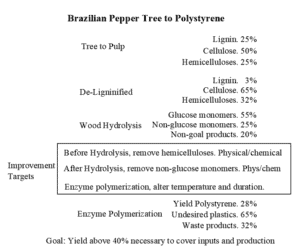
At the lab’s ColdFastFreeze refrig, Felix took out a caffeine shake and swallowed half the flask’s contents in one gulp.
Finally, Nathan pianoed his fingers on the whiteboard. “As soon as I figure out how to remove these irritating electrically active strands polluting my cellulose to plasticine process, then I’ll be able to give my full attention to talking to Meredith, although I may surprise you by saying she rarely gives me her full attention.”
His guest let that fit of pique slide by without comment. “One thing I’ve learned in my years at Plastix,” Felix said, “particularly since my uncle died, is that you must occasionally tackle an intractable problem from a different angle. Consider twisting your goal to use the anomaly. Instead of making a non-petroleum plastic replacement, perhaps change your goal to manufacturing neuro-plastics. Plastix could use such a process, if it ever gets works. The satellite spinning of neural threads to power the next generation of agrobots is horrendously expensive. If you could make them on Earth, we could corner the market.”
“I can’t believe I’m saying this, but that is interesting. Eliminate the cellulose path. Catalyze the hemicelluloses with ICP enzymes. Now, leave please, so I can get to work.”
“Oh, no.” Felix stood in front of Nathan. “Now that I’ve given you a way forward, you must keep your side of the bargain and talk with Meredith this evening.”
“I will,” Nathan said.
Felix opened the lab door. “I’ll know if you don’t. And if you don’t, not winning the grant will be the least of your worries.”
| Foundary Schools Exist Underground 40th Anniversary of Anti-CRISPR Riots – Curated News Broadcast | Markov Center Saturday May 19, 2238 |
Despite their differences, they put on a united front as they arrived at the university.
Nathan, flooded with enthusiasm about the successful, altered prototype, barely paid attention to his spouse.
They alit from their vehicle at the broad entrance of the university’s campus in the plateau west of the city.
? Help us ?
? Save us ?
? Don’t abandon us ?
Uniformed guards held a throng of chanting protesters back from the arriving attendees. Nathan’s eyes widened as he saw the familiar slogan ‘Nature is Good, Science is Bad’ emblazoned on their signs. The same words that had defaced his weather station now echoed in the chants of the protesters, a stark reminder of the growing divide between those who embraced science and those who rejected it.
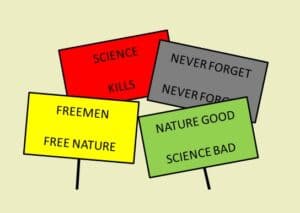
“Keep those unwashed away from us,” Nathan said when one man pushed his placard in front of them.
Meredith looked with a bit of astonishment at her spouse. “Be gentle. That’s Liam Forrest. You met him once, though that was years ago.” She called out to Liam. “Come to the clinic. We can talk.”
Nathan pushed forward. “What’s there to talk about? We have what he wants, but he can’t expect us to give it to him. He needs to work for it.”
“You just don’t understand, do you?” Meredith stopped. “Everything he had. Everything his family had the storms destroyed. It takes his every effort to make sure him and his daughter don’t die of starvation or dysentery or any of a raft of problems that you or I never face.”
Nathan responded before he thought. “And you want to bring more children into that kind of world.”
She glared at him. “Our child would be working to make the world better. Don’t say another word or I’ll turn around and leave right this minute.”
They entered the circular, concrete building in silence. The hubbub of other academics filled the air. Nathan nodded to colleagues. Meredith exchanged hellos with professors, doctors, and staff from the university hospital.
Nathan and Meredith took seats at a front table reserved for the two candidates for the annual Gilbert Award.
The other applicant, Gustav Nilsen, and Nathan worked in adjacent buildings. Gustav had given Nathan a tour of his submersible when he returned from months studying sea life changes in the upper Chesapeake, caused by its tributaries giving a huge freshwater influx, causing salinity changes. With the worldwide sea level changes, furthering his work could ease losses of coastal farms.
But Nathan felt smug that Earth-side creation of agrobot brains from plant cellulose was more fundamental and of greater consequence. He peered at the table’s basket of rolls. Was their wheat guaranteed pure, or were they made from wild grains with contaminants? He split open a round roll. No discernible imperfections. Relieved, he rooted through the condiments, found 100% synthetic margarine, applied it to the roll, and ate a bite.
While he congratulated himself that he’d avoided an awkward silence with Meredith, a person approached their table.
“Meri,” a tall red-headed man said. “I hoped I’d see a friendly face here.” He took a chair on the other side of her. They talked for a couple of minutes before Meredith turned to Nathan. “You remember Jack, don’t you? When he comes to test sentiments in the lower Patapsco, he often brings supplies from the hospital that fill clinic gaps.”
Jack reached across and took Nathan’s hand. “Good to see you again. Meri here is doing a bang-up job helping the refugees. I’m happy when I can help. I’m sure you must know how I feel.”
Nathan, try as he might, could not refuse to respond to such blandishments, but he wouldn’t get caught up in it. “Yes, Jack. Quite.”
Fortunately, the thumping of a gavel calling the meeting to order interrupted the awkward exchange.
Jack turned to Meredith. “I better return to my table. See you at the clinic, Meri. Good luck, Nathan.”
“Greetings, everyone,” Dean Borkowski said, “to the final meeting of this academic year. Let’s greet the new members to our community and congratulate those who have earned tenure.”
Official rigmarole and speeches put Nathan in tharn, a word he discovered reading Watership Down by flashlight in the Foundary’s closet, a trance state where thoughts had more reality than events around him.
He was unaware of time’s passage until the dean’s invitation for questions resulted in an inquiry from the back of the room about the Gilbert University and Hospital’s construction plans in western Maryland.
“Yes, our staff and many local students live in higher elevations away from the city. We can serve them better by being closer to their communities. And, sir,” the dean asked, “I’ve seen you around, but don’t know your name.”
“Jack Terranova, assistant professor in geology. My classes monitor water purity and sediment load in local waterways. I’ve heard that the entire BaltSea campus is being moved to Hagerstown. Is that true? It would be devastating to the remaining population struggling in the unflooded city.”
The dean quieted the murmur around the room by banging her gavel. “That is not true,” she said. “We are not abandoning the city and please don’t elevate refugee slang, BaltSea, in these halls. We will use the Hagerstown campus to entice out-of-state and out-of-country students whose parents fear that our Baltimore campus is too exposed to the chaos caused by storm surges to risk their children.”
“That’s not very reassuring and undercuts your claim of staying in BaltSea.”
The dean waved her hand towards the security guards. “I’m sorry the junior staff member doesn’t like my answer, but it’s time to move on to the highlight of this evening. The Gilbert Award.”
The lights dimmed about Jack’s table and highlighted the dais and the dean.
“Two especially worthwhile applications made this year’s decision especially difficult.” Dean Borkowski paused. “Unfortunately, we could only pick one. Without further ado, I am pleased to announce our esteemed Professor Gustav Nilsen wins this year’s Gilbert Award, to continue his essential research at Port Aberdeen where he’s explaining the alteration in the food chain due to changing salinity patterns in the upper Chesapeake Bay, the United States largest flooded estuary.”
Professor Nilsen gave his thank you speech, which Nathan resisted liking, despite the applause the gathered academics gave it.
At its conclusion, the dean returned to the podium. “Professor Nathan Garret, a relatively new member of our staff, presented an intriguing prototype that, when completed, may create a raw substrate that roboticists can mold into artificial brains for bots. These bots, in turn, may one day farm the estuaries that Professor Nilsen’s studies will help us identify.
“Although there’s only one Gilbert Award, I’m happy to announce that the university will support Professor Garret’s groundbreaking research by granting him a sabbatical, to create a small, but operational factory converting wood pulp to neuro-plastic threads.”
From the low of not winning to a joy of being freed to build from scratch the Florida uplands factory left the pessimistic Nathan in muted shock.
Heading home, Nathan said, “This is great. I’m sure I can convert the tree processing plant north of Tallahassee in just a few months. What do you think?”
Meredith didn’t respond at once, though finally she said, “I think you can do it. Please let me know your progress if you have time to call me.”
A chill ran down Nathan’s spine. Her distance confirmed the awareness he tried to deny of the gap between their desires.
| Don’t wait for the Last Judgment. It takes place every day. – Albert Camus | Enoch Hall Wednesday July 4, 2238 |
Weeks flew by as Nathan gathered items he would need in Florida.
Besides extensive amounts of piping, vats, valves, quality measuring devices, new hemicellulose enzymes from the zero-gravity orbiting factory, he had Lucia adjusting the separation, incubation period, and polymerization limits to regularize the electro-strands output.
He’d be glad to leave BaltSea. Damn, Jack’s refugee term had stuck in his mind.
In the past month, he and Felix had talked more than he and Meredith. If Plastix Corporation picked up a fresh slice of the lucrative AI brain market, Meredith could expand her services to the homeless.
Felix emphasized that as populations decline and age, robots become essential replacements for workers to ensure society’s continuity.
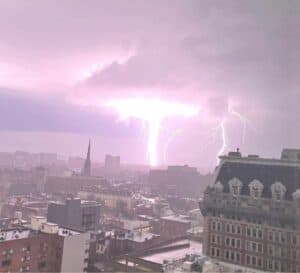
Extraordinary lightning bolts outlined abandoned buildings closer to the harbor. The onset of the summer monsoon considerably slowed down the transportation of seaborne foodstuffs. This amplified the shortages that came from the loss of bridges and roadways to inland farming.
Out the lab window, Nathan looked to the far right. In front of Enoch Tower, a hundred people milled about. What did they want? Did they expect Gilbert University to turn back the storms? Although many scientists worked toward that goal, it would not happen in a day.
“Professor Garret,” Lucia interrupted his musings. “There’s a growing group of hungry people camped outside the admin complex even in this horrendous storm. They have bonfires, not yet endangering the buildings, but I heard shouting about raiding cafeterias.”
“Let’s blacken the windows. Not let them know we’re in here. Lucia, go home but use the back way.”
She interrupted him. “No, first, we must discuss what happens to the lab when you’re in Florida.”
He turned to his grad assistant. “Go on.”
Lucia Jefferson sucked in her lips, pursed her cheeks, then rushed her words. “I’ve finished my dissertation and have the lab accomplishing your goals well. I expect you to push reluctant members to accept my thesis, grant my PhD, and also to recommend that I run the laboratory while you prove your concept in the Florida panhandle.”
Nathan admired her forthright statement and her composure. “Didn’t I tell you? Already in the works. However, when I return, we’ll need to have a conversation about how many new projects you’ve gained and revisit the allocation of projects. But enough of that. Go home now but use the back way. Don’t be seen leaving from here. Go.”
After she left, he dialed the clinic. But it wasn’t Meredith or Alandra who answered, but Tamesha. “What do you want?” she asked.
“To talk to Meredith.”
Tamesha shook her head. “She’s very busy attending to refugees injured trying to get food for themselves and their families.”
“What’s happened?” he asked.
“Where have you been? Cupboards are bare and stomachs are empty. I’m at her clinic and not my office, because refugees have stopped applying for asylum. They’ve bigger problems. My sources tell me they are gathering at the one place in BaltSea that always has food. Gilbert University.”
Nathan glanced out at the crowd. It looked larger and more threatening. Two new bonfires swirled smoke into the turbulent atmosphere. He glanced at the packed boxes for Florida. Until the monsoon broke, no delivery company would pick up.
The mob headed up the front steps into Enoch Tower. A tall red-headed man pushed open the ornamental entryway. Most of the crowd surged in, but some stragglers drifted toward other buildings, including the life sciences cluster.
“Got to go.” He hung up on Tamesha, forgetting his intention to talk with Meredith.
He called Gustav Nilsen. “Gustav, you live close by. Listen. There’s a mob coming towards the front of your building. If you want to save anything in your lab, you better hurry. Don’t use the front entrance. The back is your best bet.”
~~
Nathan took the stairs down, ran across the wet grass into the woods, and slowed to a jog when he entered the residential neighborhood. Looking back, was it his imagination or were the smoke plumes thicker? No residents were outside.
An eBike lay under a tarp in a house’s side yard.
He had to get to the floating dock. Getting on the bike, he pedaled south, toward the harbor.
Some people walked in the street lanes, but no cars were out. A few people pushed at him, but he evaded them.
Ten minutes later, he turned left at the pier until he reached the guard’s hut of a boating marina. Ditching the bike, he approached the hut.
“Stop.” The guard pulled his cap on and stepped in front of Nathan. “I don’t recognize you. You don’t have a slip here.”
“True.” Nathan held his arm above his head, but it barely blocked any rain. “My friend, Gustav Nilsen, asked me to check on the Nereid. He’s worried another ship will not be properly secured and damage his.”
The guard unclipped his taser. “That doesn’t sound like Nilsen. He knows I run a tip-top marina.”
“Call him. He’ll confirm my story.”
As the guard leaned back into his hut for a compad, Nathan jumped forward and pushed the guard into the churning harbor water.
He ran to the Nereid ramp and onto the submersible’s top deck. Quickly casting off, he ignored the guard’s loud cursing and started the engine.
As soon as Nathan cleared the other moored ships, he throttled the surface engine to the max. It was not long before the harbor buoy slipped behind him and the floating pier disappeared in the mist.
Upon reaching the bay marker, Nathan turned south to exit the bay rather than north for Port Aberdeen. The decision weighed heavily on him, but he knew it was the only way out of an impossible situation. As the harbor buoy slipped behind him and the floating pier disappeared in the mist, he felt a mix of relief and determination.
He submerged the Nereid to ensure he escaped the surface world undetected. The submersible descended into the depths, leaving the chaos of the surface behind. In the quiet of the underwater world, Nathan’s mind began to clear. He had a plan, one that would take him away from the turmoil above and into the unknown below.
As the Nereid glided through the dark waters, Nathan’s thoughts turned to the future. He would continue his work, but this time with a new purpose. The rising sea waters held secrets and possibilities that the surface world could not offer. Nathan was determined to explore these depths, seeking solutions that could bridge the gap between nature and science. His journey was far from over; it had only just begun.
~~


